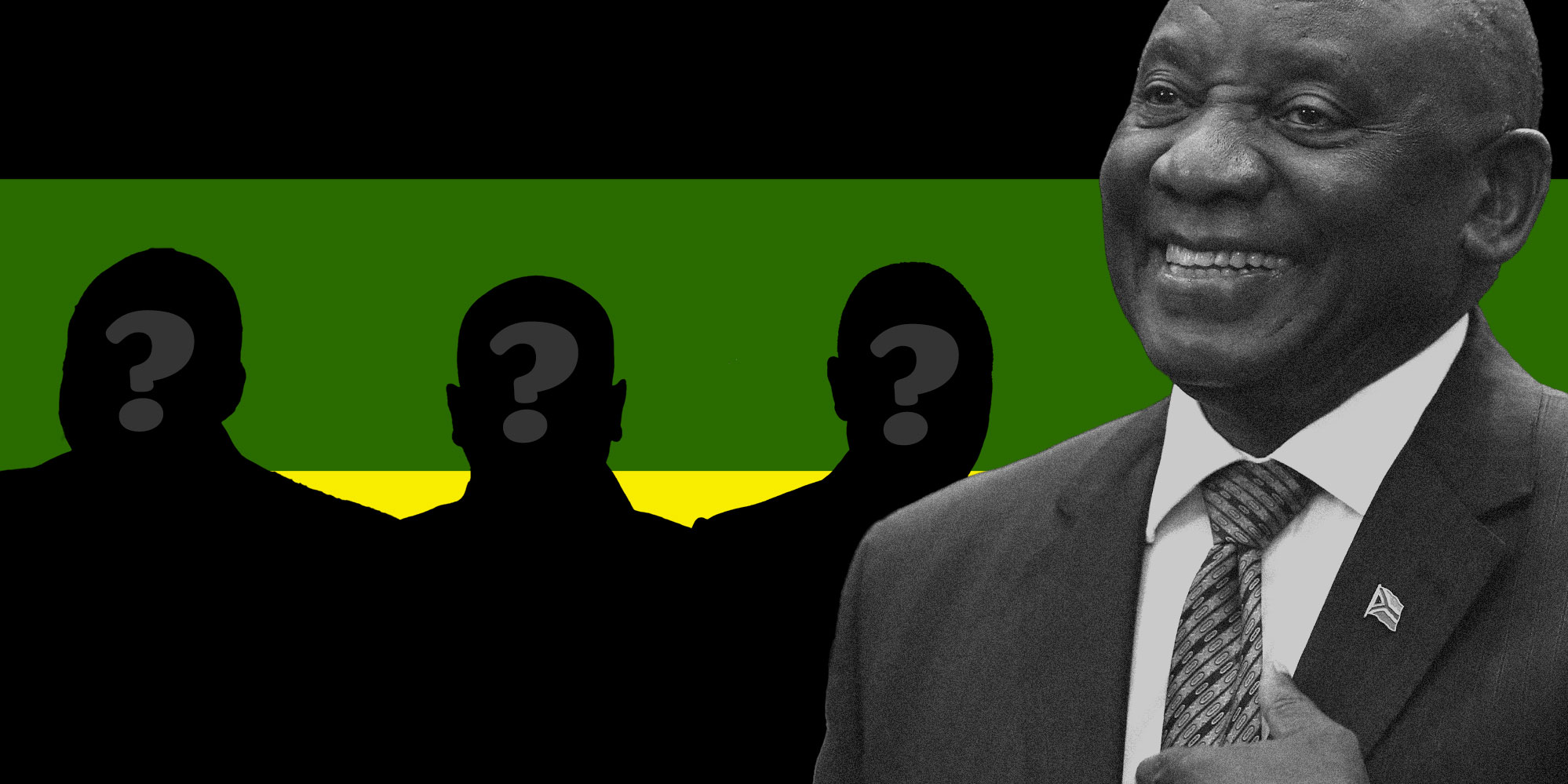The question of who will lead the ANC is of great importance because the leader of the ANC is not just a party head, but is virtually guaranteed to become the next President of South Africa.
For a while, the transition process was orderly, with the ANC’s deputy president seemingly ordained as the party’s president-in-waiting. Things look much less certain now.
While Ramaphosa is surely right that a government cannot revolve around one personality, it is also true that we would be in a very different situation now had he not won the ANC’s leadership election at Nasrec in 2017.
As the ANC is still the largest party in our politics, its leader is still an odds-on favourite to be SA’s next president.
Since December 2017, it has not been clear whether Ramaphosa has a preferred successor.
When he was elected leader of the ANC it was obvious that he did not have a close personal relationship with Deputy President David Mabuza. In 2023, Mabuza — for reasons that are yet to be fully disclosed — announced he would leave frontline politics in 2024.
Paul Mashatile, elected as deputy leader of the ANC in 2022, is an ambitious politician who has shown a few flashes of this in public: during the frantic few days before the ANC’s 2022 conference, when it appeared that Ramaphosa might resign over the Phala Phala scandal, there were indications Mashatile was trying to be nominated for the position of ANC leader.
Since then, consistent reporting by News24 about his private life, along with strongly supported claims that he and his family have benefited corruptly from government money, may have weakened his chances.
Certainly, he has battled to form the public image that would help him to win the top spot.
Crucially, he also appears to have failed to extend his constituency beyond Gauteng. While it is still possible for him to receive support from other provinces, this would probably require deals with the leaders of those provinces, rather than the organic support which strengthens a leader.
One of the bigger problems ANC delegates will face at the party’s 2027 conference is that they no longer have the luxury of electing a leader who will not win them votes.
There is plenty of evidence that shows the importance of a party leader to that party’s electoral success.
Thus, the ANC needs a leader who will be able to win votes on the campaign trail. It is difficult to see who this person could be.
In most cases, the president of the ANC has been one of its top national officials. (Currently, the number is seven; before that, it was six and at one point, five).
The contenders
If this precedent were to be followed, the contenders for the position of ANC leader are Mashatile, Secretary-General Fikile Mbalula, Deputy Secretary-General Nomvula Mokonyane, Second Deputy Secretary-General Maropene Ramokgopa, National Chair Gwede Mantashe and Treasurer Gwen Ramokgopa.
None appears to have a profile that could help the ANC win votes.
While Mbalula has always been ambitious, his consistent displays of incompetence, his habit of lying to get out of trouble and several skeletons in his cupboard count against him.
Mokonyane has been shown by the Zondo Commission to have been involved in corruption.
Mantashe, while displaying all of the cunning and the ferocity of a tiger, may not have the requisite popularity.
While he played an important role in preventing former president Jacob Zuma from maintaining his power in the ANC in 2017, he has made some catastrophic decisions as minister of mineral resources and energy, while his mismanagement of the cadastral system almost sabotaged the mining sector.
That leaves Gwen Ramokgopa and Maropene Ramokgopa, both of whom have relatively low public profiles.
Also in contention
While it is not clear whether Ramaphosa has any particular favourite, he has certainly ensured that Ronald Lamola has been given plenty of authority.
First, in 2018, with the land issue dominating politics, Lamola was appointed to head the discussions on the issue for the ANC.
Then, he became minister of justice and correctional services, a position that Ramaphosa surely regarded as crucial.
Now, after this last election, he is the minister of international relations and cooperation, one of the most important positions in the government.
Lamola is much younger than the other contenders, which may help him to connect with young voters, an area where the ANC’s ageing leadership is clearly vulnerable.
That said, he does not have the kind of profile that Ramaphosa had before becoming party leader.
It seems likely that this will be a hugely important generational change too — Ramaphosa may be the last leader of the ANC to have played a major role during the liberation Struggle.
While some of the other contenders did play a role, none were nearly as prominent as Ramaphosa and his predecessors.
This is likely to count against the ANC in the 2029 elections and could see the party losing more support in those polls.
This suggests that Ramaphosa’s prediction, that the coalition government will continue after his time, will be correct. The ANC will have no choice but to stay with a coalition government, as it will not be able to play a role in government without the help of other parties.
All of this means that an important question that will determine our future is unresolved: It is still not clear who our next president will be. DM





 Illustrative image: President Cyril Ramaphosa takes the oath at the 7th Parliament’s first sitting of the National Assembly in Cape Town on 14 June 2024. (Photo: Shelley Christians)
Illustrative image: President Cyril Ramaphosa takes the oath at the 7th Parliament’s first sitting of the National Assembly in Cape Town on 14 June 2024. (Photo: Shelley Christians)